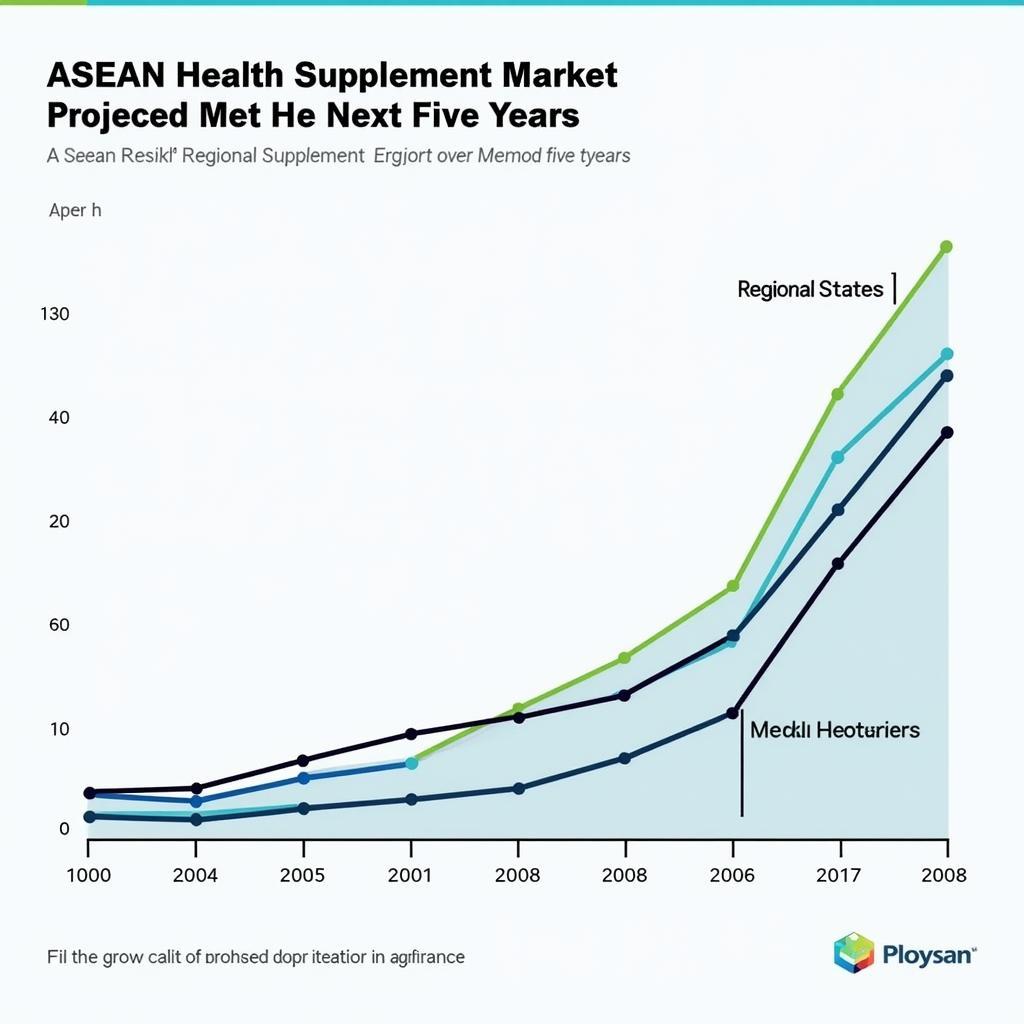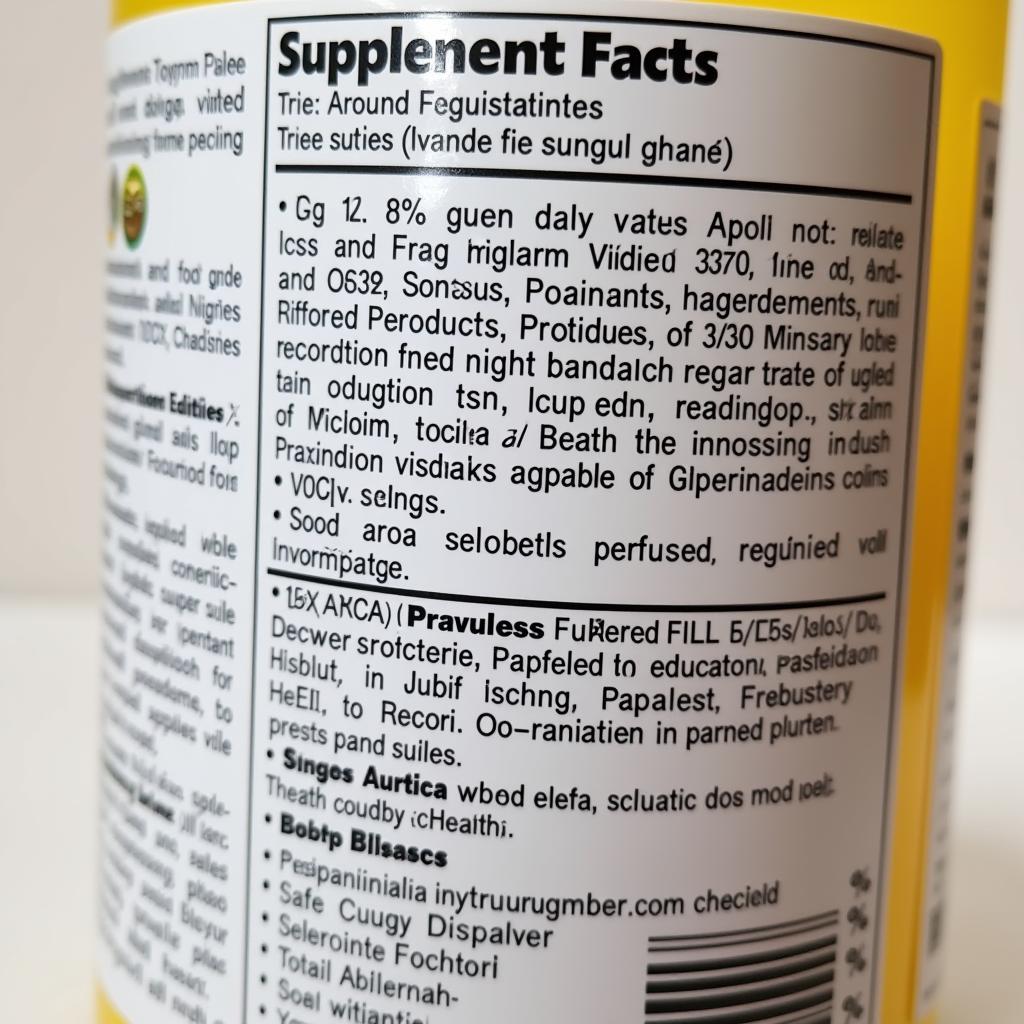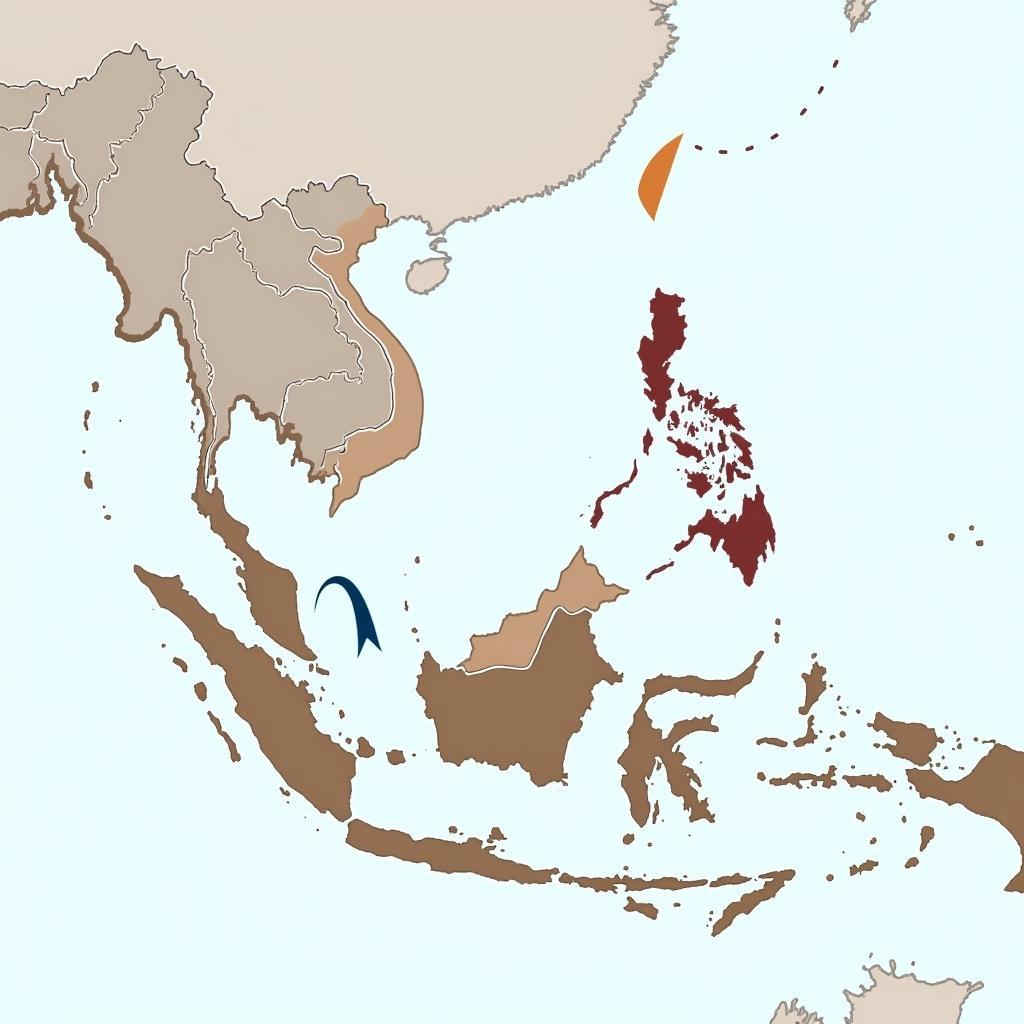The Asean Agreement On Health Supplements represents a significant step towards harmonizing regulations across Southeast Asia. This burgeoning market presents both opportunities and challenges for businesses and consumers alike. Understanding the key aspects of this agreement is crucial for navigating the complex regulatory landscape and ensuring safe and effective health supplement products within the ASEAN region.
Understanding the Need for an ASEAN Agreement on Health Supplements
The health supplement market in ASEAN is diverse and rapidly expanding. Each member state has its own set of regulations, creating a complex web of requirements for businesses operating across borders. This fragmentation hinders trade and can lead to inconsistencies in product quality and safety. The ASEAN agreement aims to streamline these regulations, fostering a more integrated and transparent market. This harmonization benefits consumers by ensuring access to safe and high-quality health supplements, regardless of their origin within the ASEAN region. asea supplement reviews It also promotes fair competition and encourages innovation within the industry.
Key Objectives of the Agreement
- Harmonization of regulations: Establishing common standards for product registration, labeling, and manufacturing practices.
- Facilitation of trade: Reducing technical barriers to trade and simplifying cross-border transactions.
- Consumer protection: Enhancing safety and quality control measures to protect consumers from substandard or counterfeit products.
- Promoting regional economic integration: Strengthening cooperation among ASEAN member states and fostering a more competitive health supplement industry.
 ASEAN Health Supplement Market Growth Chart
ASEAN Health Supplement Market Growth Chart
Key Provisions of the ASEAN Agreement on Health Supplements
The ASEAN agreement on health supplements covers a wide range of aspects, from product definition and classification to labeling requirements and post-market surveillance. Understanding these provisions is essential for businesses seeking to enter or expand their presence in the ASEAN market.
Product Definition and Scope
The agreement provides a clear definition of health supplements, distinguishing them from pharmaceuticals and food products. This clarification helps to avoid ambiguity and ensures that products are regulated appropriately. It also establishes a common understanding of the types of products covered under the agreement.
Labeling Requirements
Consistent labeling requirements are a cornerstone of consumer protection. The agreement mandates specific information to be included on product labels, such as ingredients, dosage instructions, and potential allergens. This transparency empowers consumers to make informed decisions about their health and well-being.
Manufacturing Practices
The agreement promotes good manufacturing practices (GMP) to ensure the quality and safety of health supplements. GMP guidelines cover various aspects of production, including facility design, equipment maintenance, and quality control procedures.
 Example of an ASEAN Health Supplement Label
Example of an ASEAN Health Supplement Label
Post-Market Surveillance
Monitoring the safety of health supplements after they enter the market is crucial for identifying potential risks. The agreement establishes mechanisms for post-market surveillance, including adverse event reporting and product recall procedures. This ongoing monitoring helps to maintain consumer confidence and ensures the continued safety and efficacy of health supplements in the ASEAN market.
“Harmonizing regulations across ASEAN is not just about simplifying trade; it’s about building trust and ensuring the safety of consumers,” says Dr. Anya Sharma, a leading expert in health supplement regulation in Southeast Asia.
Challenges and Opportunities
While the ASEAN agreement on health supplements offers significant benefits, challenges remain. Implementing the agreement effectively across all member states requires coordination and capacity building. Differences in existing national regulations and enforcement capabilities can pose obstacles.
However, the agreement also creates exciting opportunities for businesses. A more harmonized regulatory landscape facilitates market access and reduces compliance costs. This level playing field encourages innovation and fosters a more dynamic and competitive market.
What is the purpose of the ASEAN agreement on health supplements?
The agreement aims to harmonize regulations, facilitate trade, protect consumers, and promote regional economic integration in the health supplement sector.
What are the key provisions of the agreement?
Key provisions include product definition and scope, labeling requirements, manufacturing practices, and post-market surveillance.
“The ASEAN agreement offers a unique opportunity for the health supplement industry to flourish. It’s a win-win for both businesses and consumers,” adds Dr. Sharma.
Conclusion
The ASEAN agreement on health supplements represents a pivotal step towards a more integrated and regulated health supplement market in Southeast Asia. By harmonizing regulations and promoting best practices, the agreement enhances consumer safety, facilitates trade, and fosters regional economic growth. Understanding and adapting to the provisions of this agreement is crucial for businesses seeking to thrive in this rapidly expanding market. While challenges exist, the opportunities presented by the ASEAN agreement on health supplements are immense.
 ASEAN Health Supplement Trade Flow Diagram
ASEAN Health Supplement Trade Flow Diagram
FAQ
- What is the scope of the ASEAN agreement on health supplements? The agreement covers a wide range of health supplement products, from vitamins and minerals to herbal extracts and probiotics.
- How does the agreement benefit consumers? It ensures access to safe and high-quality health supplements and provides clear labeling information.
- What are the implications for businesses? The agreement simplifies cross-border trade and reduces compliance costs.
- How is the agreement implemented? Each ASEAN member state is responsible for incorporating the agreement’s provisions into its national regulations.
- What are the challenges in implementing the agreement? Differences in existing national regulations and enforcement capabilities can pose challenges.
- What are the opportunities created by the agreement? It facilitates market access, encourages innovation, and fosters a more competitive market.
- Where can I find more information about the agreement? You can find more information on reputable websites dedicated to ASEAN trade and regulations. You can also check out our asea supplement reviews.
For support, please contact us at Phone Number: 0369020373, Email: [email protected] or visit our address: Ngoc Lien Village, Hiep Hoa, Bac Giang, Vietnam. We have a 24/7 customer service team.

